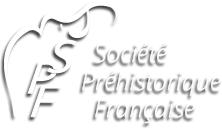![[Paru 2018] Haüser der Bronze- und Eisenzeit im mittleren Europa : eine vergleichende Untersuchung](/static/img/bw_prec_21.gif) Actualités
Actualités ![[Paru 2018] Homo canis : une histoire des chiens et de l'humanité](/static/img/bw_suiv_21.gif)
![[Paru 2018] Relentlessly Plain: Seventh Millennium Ceramics at Tell Sabi Abyad, Syria](../image_inline_src/515/515_actu_35608.jpg)
 |
[Néolithique] Olivier P. Nieuwenhuyse (2018) - Relentlessly Plain: Seventh Millennium Ceramics at Tell Sabi Abyad, Syria, Oxford, Oxbow, 384 p. EAN 9781789250848, 70,00 €. The prehistoric site of Tell Sabi Abyad lies in the valley of the Balikh River, a tributary of the Euphrates in northern Syria. Between 2001 and 2008 excavations focused on the north-western, western and southwestern slopes of the main mound (Operations III, IV and V). Relentlessly Plain presents the results of detailed investigations into the 7th millennium BC ceramic assemblages recovered from those excavations by an interdisciplinary group of scholars. The 7th millennium BC was an era of profound cultural transformations in the ancient Near East. This began with the sustained adoption of pottery c. 7000 cal BC, followed by the slow advance of the new craft as pottery containers became increasingly common. Important social, economic and ritual activities became increasingly dependent on pottery containers. Over the course of the millennium, prehistoric communities began to cook food and drink, store surpluses, and send symbolic messages via the medium of pottery vessels. Tell Sabi Abyad offers a unique vantage point from which to study these innovations. Supported by a strong program of radiocarbon dating, extensive excavations have revealed a lengthy, continuous sequence of prehistoric occupation from the start of the Late Neolithic into the Early Halaf period. Pottery changed dramatically in the course of this long trajectory. Whereas in the initial stages pottery containers were rare, at the end of the sequence they represented a mass-produced craft. Initially ceramic containers were visually conspicuous, occasionally decorated, but masses of relentlessly plain pottery characterize subsequent stages. The book combines detailed discussion of themes relevant to the study of early ceramics in the ancient Near East with extensive analyses of each of the individual wares currently distinguished at the site. Separate chapters offer perspectives on the archaeometry, the depositional context, early repairs, food residues, provenance and associated human burials. . |


